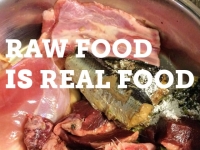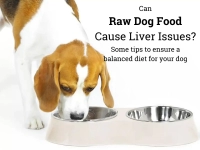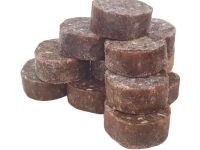Can Raw Food Revolutionise Your Dog’s Allergy Battle?
In This Article...
THE OVERVIEW...
The conversation around dog diets is evolving, and raw food is at the forefront of this culinary revolution. As pet owners grapple with the impact of allergies on their furry companions, many are asking: can a raw food diet bring relief? This exploration seeks to demystify the relationship between raw food and canine allergies, addressing common misconceptions and shedding light on expert insights.
Understanding Dog Allergies
What Are Dog Allergies?
Dog allergies manifest when the immune system overreacts to typically harmless substances. These can be food-based—such as proteins or grains—or environmental, like pollen or dust mites. Symptoms often include incessant itching, skin irritations, and gastrointestinal disturbances, leaving many pet owners in search of solutions.
Causes of Dog Allergies
Common allergens typically reside in specific proteins, grains, and even some environmental factors. Genetics plays a significant role, with certain breeds predisposed to develop sensitivities. Understanding these triggers is the first step in managing a dog’s allergies effectively.
The Raw Food Diet Explained
What is a Raw Food Diet for Dogs?
A raw food diet consists of uncooked meats, bones, fruits, and vegetables. Variations include the BARF (Biologically Appropriate Raw Food) diet and the prey model, which aims to mimic a dog’s ancestral eating habits. This approach excludes the fillers and artificial additives prevalent in many commercial dog foods.
Nutritional Benefits of Raw Food
Raw diets boast high protein content and natural nutrients that can enhance a dog’s overall health. With the absence of preservatives and fillers, many owners report improved energy levels and coat condition in their pets.
Raw Food and Allergies: The Connection
Can Raw Food Help with Allergies?
Many dog owners claim that transitioning to raw food has alleviated their pets’ allergy symptoms. The elimination of common allergens found in processed foods, coupled with a diet rich in natural ingredients, can reduce inflammation and promote skin health.
Does Fresh Dog Food Help with Allergies?
Fresh food diets, which feature natural, unprocessed ingredients, may also aid in allergy management. Unlike conventional dog food, fresh options often avoid common allergens, making them a suitable choice for sensitive dogs. For more on the benefits of green tripe in a raw food dog diet, visit Kuri.
Expert Opinions on Raw Food for Dogs
Why Don’t Vets Recommend Raw Dog Food?
Some veterinarians express hesitance regarding raw diets, citing concerns about bacterial contamination, such as Salmonella and E. coli. Additionally, the risk of nutritional imbalances if the diet is not properly formulated raises alarms among many in the veterinary community.
The Case for Raw Food: Vet Perspectives
Despite the concerns, some veterinarians advocate for raw diets, particularly for dogs with specific health issues. Open discussions with a vet can provide tailored advice, ensuring that any dietary changes align with a dog’s unique needs.
Addressing Common Concerns
Will Raw Food Stop My Dog from Itching?
Many owners report a decrease in itching after switching to raw food, thanks to its anti-inflammatory properties and the potential for improved skin health. Identifying specific allergens within a dog’s diet is crucial for maximising the benefits of any new food regimen.
Why is Raw Food Not Universally Recommended?
The risks associated with raw diets—such as bacterial contamination and nutritional imbalances—prompt caution. Quality sourcing and proper handling of ingredients are paramount to ensuring a safe feeding experience. The right approach can make all the difference.
The Best Feeding Strategies for Dogs with Allergies
What is the Best Way to Feed a Dog with Allergies?
A balanced diet tailored to individual needs is key when addressing dog allergies. Transitioning to a raw or fresh food diet can be beneficial, but it’s wise to consult with a veterinarian for personalised dietary recommendations.
Tips for Success
- Introduce raw food gradually to monitor your dog’s response.
- Observe changes and adjust the diet as necessary.
- Focus on sourcing high-quality ingredients for optimal health benefits.
Conclusion
The potential of raw food to alleviate dog allergies is a subject of both intrigue and caution. While many pet owners find success with this dietary approach, collaborating with a veterinarian is crucial for personalised guidance. Share your experiences in the comments below, and let’s continue this important conversation. For further insights, explore Primal Canine Raw.
FAQs
Why don't vets like raw dog food?
Some veterinarians express concerns about the risks of bacterial contamination and nutritional imbalances. Nevertheless, many advocate for raw diets when appropriately formulated and handled. At Kuri we insist on high standards from our manufacturer and often these concerns come from international products the do not have the same standards that New Zealand manufacturers are held to.
Does fresh dog food help with allergies?
Fresh dog food may assist in managing allergies by eliminating common allergens found in processed foods and offering natural, easily digestible ingredients.
Will raw food stop my dog from itching?
Raw food can potentially reduce itching and inflammation in dogs with allergies. However, consulting with a veterinarian is essential to determine the best dietary approach for your pet's specific needs
What is the best way to feed a dog with allergies?
Feeding a dog with allergies involves providing a diet tailored to eliminate common allergens. Raw or fresh food can be effective, but professional guidance is advisable for optimal results.








